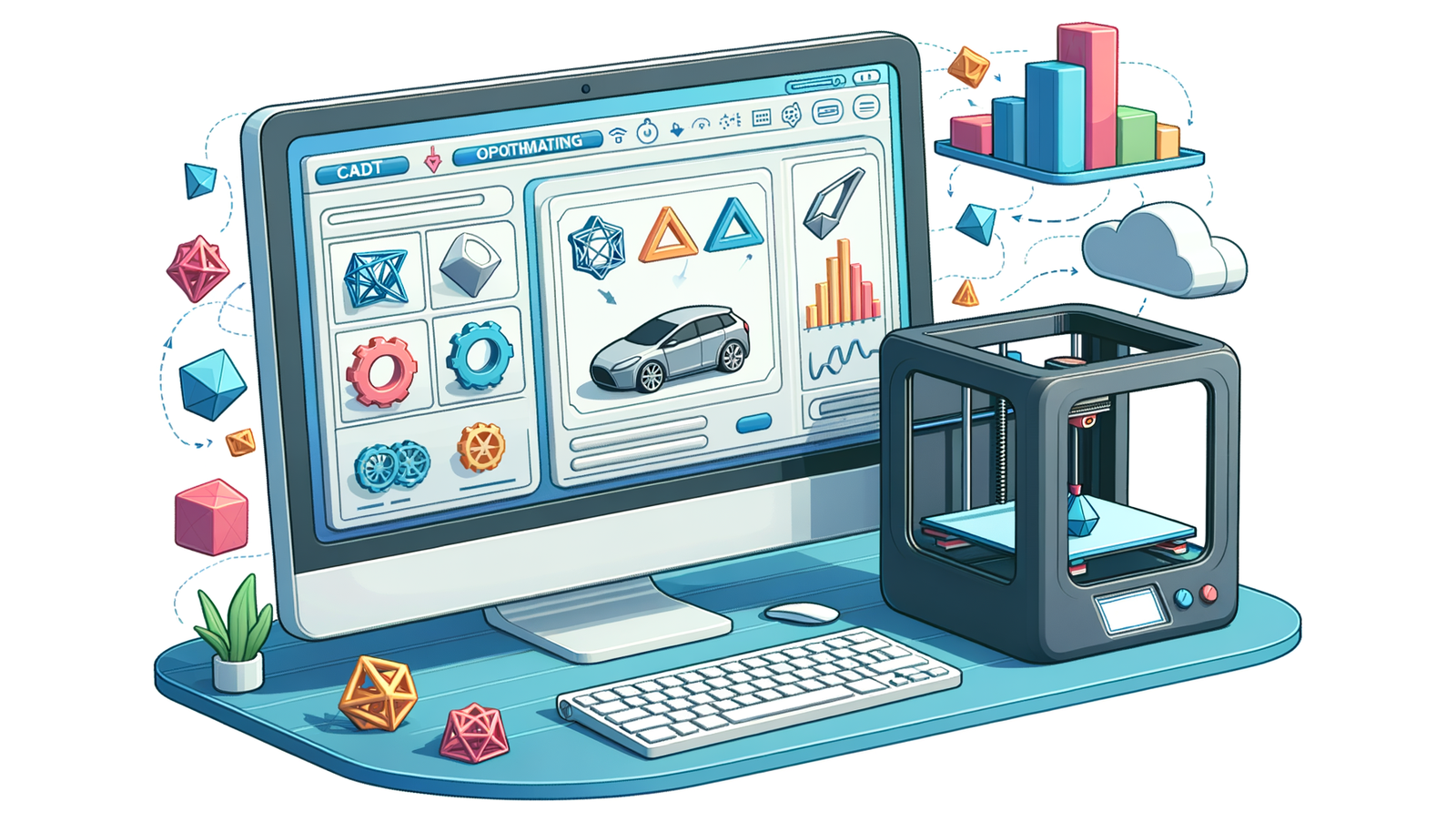Your Cart is Empty
Recent Articles
- Introducing Smart Gadgets in Canvas Envision
- Optimizing CAD Software for 3D Printing: Enhancing Design-to-Production Efficiency
- Have you every had a 3ds Max script stop working?
- ZBrush Tip: Mastering Selection Tools for Enhanced ZBrush Workflow Efficiency
- Revit Tip: Optimizing Revit Projects with Expert Use of the Offset Tool
- AutoCAD Tip: Enhancing Drafting Precision with AutoCAD's Section Command
- V-Ray Tip: Enhance Your Workflow with V-Ray's Light Mix for Interactive Post-Production Lighting Adjustments
- Design Software History: Transforming Product Launches: The Evolution of Design Software in Virtual Marketing Strategies
- Custom Scrapbooks in LayOut
- Bluebeam Tip: Creating and Using Custom Symbols in Bluebeam Revu for Enhanced Markups
Closing the gender gap in tech with Girls Who Code
August 17, 2022
From Autodesk News: Cornelia Scheitz

Girls can do anything. Conduct groundbreaking research in math or physics, identify a new treatment for cancer, build a car, fly a plane, bake a cake and eat it, too. As a child, this is how I saw the world.
Growing up, I had role models all around me that fostered my potential. It wasn’t until I grew older that I discovered that the world did not see girls’ potential the way I did. Fortunately, I was lucky and privileged to already have the confidence needed to find my path, no matter the obstacles.

When I was a teenager, I was fortunate to be surrounded by supportive role models.
Early in my career, I spent years in a laboratory doing research on skin cancer. This formative experience inspired me to develop hardware and software automation to simplify and democratize lab work. From there, I transitioned to leading teams in software development and innovation management.
My career experiences have taken me on quite a journey and horizontal changes fueled my growth and curiosity. I’m passionate about sharing what I’ve learned to support the next generation of women to dream big, explore, and be unafraid to forge their unique career paths in tech.

Me (bottom) having fun with friends in my first role.
This is especially important given that the gender gap in tech has been increasing over the decades. In 1995,37% of computer scientists were women. Today, it’s only 24%. The biggest drop-off in the number of girls in computer science occurs between the ages of 13 and 17.
This is whereGirls Who Code (GWC) comes in. This organization seeks to not only reverse this trend but also close the gender gap in new entry-level tech jobs by 2030.
Autodeskers showcasing a variety of tech roles
While this was my first year volunteering with this program, Autodesk has supported its two-week summer immersion program geared towards girls and nonbinary high school students since 2016.
This summer, more than 20 amazing Autodeskers volunteered, running interactive training sessions for a cohort of 60 participants. The program introduced the students to a variety of roles in tech, such as product manager, data scientist, quality assurance engineer, chief of staff, user experience designer, conversation designer, and more.

The Girls Who Code program is designed to help participants learn important tech skills, have fun, and gain confidence. Image credit: Girls Who Code.
I caught up with Paisley Green, a fellow volunteer, after the program wrapped. She said, “As a former teacher and current Autodesker, I’ve seen the power of education and positive role models in shaping a person’s future career goals. Volunteering was my way to hopefully encourage other young women to join the tech space and offer tips on how to successfully start their career.”
Providing real examples of how Autodeskers shaped their unique career paths provided the inspiration for student participants to build the confidence to do the same. We also provided guidance on how to use LinkedIn and other online resources to network, structure their resumes, and find new opportunities. Lastly, we provided coaching for internship interviews, encouraging them to use their strengths and experiences to drive the conversation.
“Being asked to volunteer for GWC is a no-brainer,” Autodesker Rowena Ortega shared with me. “This program not only teaches the students about careers, resume building, networking, and interviews, but the volunteers like myself learned from each of the presenters as well. It was amazing to see the questions that the students asked and how interactive they were during our sessions.”
Learning to code and inspiring change
With the foundation set, the cohort launched into the core of the program, learning how to code. This was the first exploration into CSS, HTML, and JavaScript for most of them. During the course, the students identified a topic they are passionate about, and built websites to foster informed debates and drive change.

Celebrating the end of this year’s program.
What I got to see during the showcase exceeded my expectations. The participants chose to tackle significant problems with deep insight and creativity: Air pollution, immigration inequality, discrimination in the NYC education system, genocide in Armenia, homelessness, and poverty, global water scarcity, and attacks on reproductive rights.
I was inspired and humbled to hear their passion around the topics they chose, and the actions they are taking to solve these issues. By the end of the two weeks, I could clearly see how closing the gender gap in tech will change the world for the better.
As the program wrapped, I felt inspired watching the students’ confidence grow. Not only did they leave with new technical skills, but more importantly, they expressed feeling empowered by their futures.
The participants left with the same feeling I had when I was their age: They knew they could do anything.
Learn about other ways Autodesk is lighting career paths for the next generation

Browse Autodesk Products
The world's leading innovator of 2D and 3D graphics technology
Also in Design News
Subscribe
Sign up to get the latest on sales, new releases and more …





